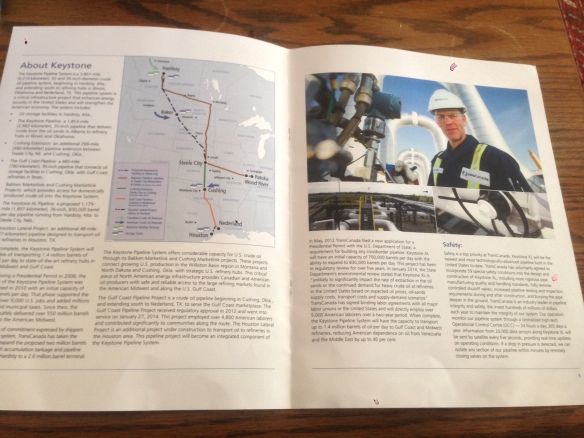
An image supplied by Alberta-based energy company TransCanada that was featured in Canadian government advertising promoting the Keystone XL pipeline in Washington. Photo courtesy of Natural Resources Canada
Prime Minister Stephen Harper’s department and his finance minister have personally approved at least two separate multimillion dollar ad campaigns paid for by taxpayers, say government officials.
Both the Finance and Natural Resources Departments said Friday that they developed the two ad campaigns “in consultation” with Joe Oliver’s office and the Privy Council Office.
One campaign, which concluded in April, promoted the Canadian oil industry in the United States. A separate ad campaign is now telling Canadians that the government is helping families.





